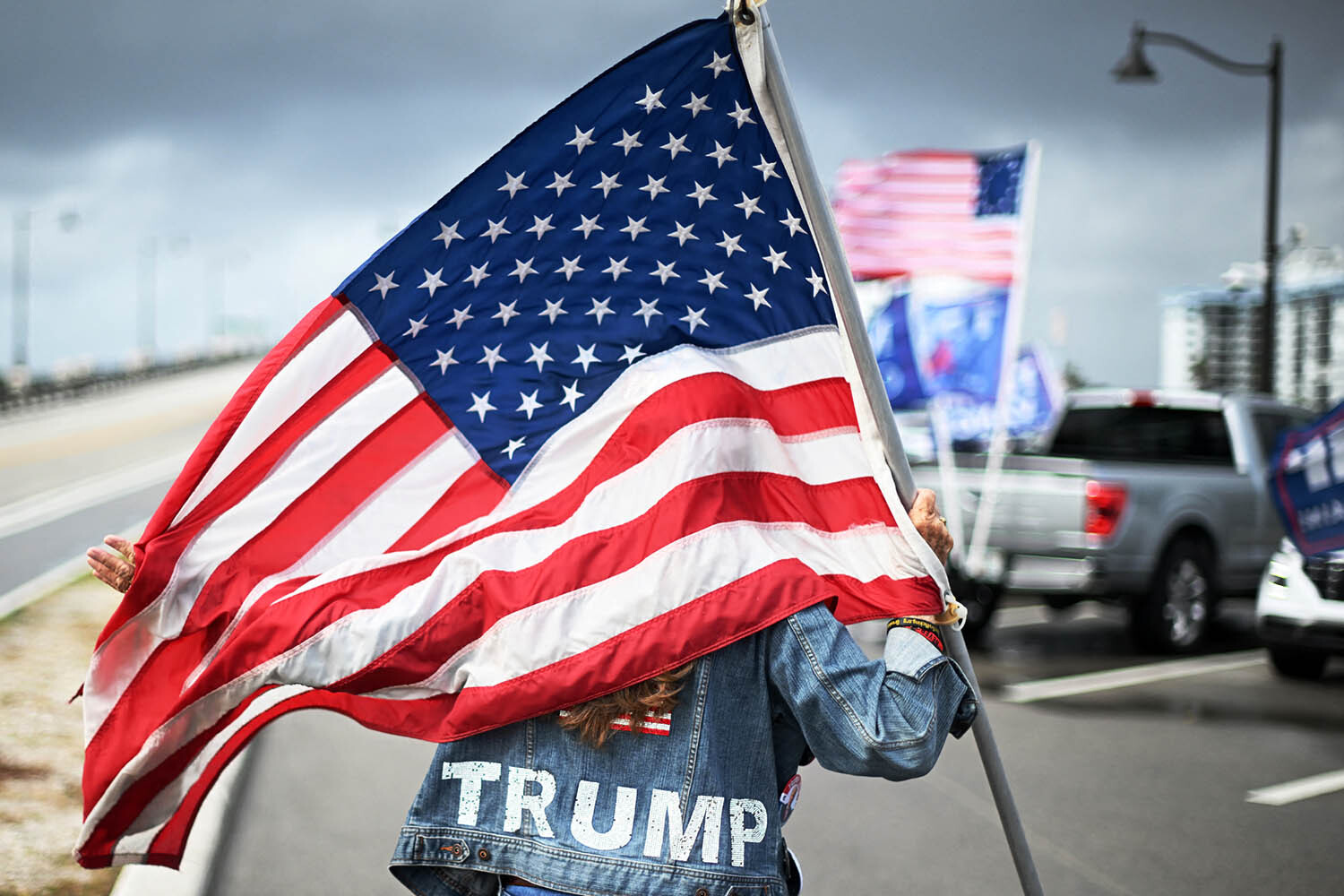Donald Trump’s foreign policy can seem contradictory. He was described by many as isolationist, but has launched unprecedented bombing raids on Iran. He says he’s against wars, but is increasing defence budgets. He can sound like a realist, the ideals-free ideology where cold self-interest rules, but his state department promises illiberal interventionism to support far-right movements in Europe and champion white farmers in South Africa. Trump even nods towards regime change in Iran: a clarion call for neoconservatives.
But these contradictions make sense when you look at the data about how his policies satisfy the emotional needs of his voters, and of himself. This is a foreign policy organised by feelings.
Recently, I’ve been reviewing polling and in-depth interviews that the Pennsylvania-based Worthy Strategies has been running for two years to work out how Americans view foreign policy. They show that self-described Maga voters are just as contradictory as their president. They are both among the most opposed to foreign entanglements and the most obsessed with US primacy in the world. Only 46% of Maga voters back US leadership in the world, compared with 74% of Democrats. However, 98% of Maga voters think it’s important for the US to be viewed as the most powerful nation militarily and economically, compared with 64% of Democrats. In short, they want to feel that America is strong but don’t want the responsibilities that come with leadership. They want both meanings of “America First”: the US as the world’s top dog, and putting America’s domestic priorities before international affairs.
The duality is particularly stark when it comes to views on China. Of Maga voters, 93% think that if China were to surpass the US economically and militarily, it would threaten America’s freedom – only 64% of Democrats agree. When it comes to backing Taiwan with troops, however, just 49% of Maga voters agree, compared with 54% of Democrats.
In-depth interviews give a sense of the psychological background to the survey data. Maga voters talk about their desire for the US to “set the clock”, to show that it is in control. Interviewees fear other countries will dictate to them, comparing themselves to kids who will be told by their parents when to go to bed.
This desire for assertiveness plays out against a background of pervasive anxiety. These voters are the most worried about losing access to food, the most worried about the border and the most worried about getting pulled into a third world war. They fear the US economy spiralling out of control and the dollar crashing. They feel that something terrible is always imminent. Trump thus gives them the bravura they want, while feeding their anxiety with stories about a dark and scary world. He increases the feeling of vulnerability and offers a quick emotional fix.
More than anything, Maga voters describe the world as a fog of confusion. They see no structure to global conflicts, no clear battle between freedom and dictatorship, let alone any fealty to the “international rules-based order”. It is this confusion that is the enemy, rather than any one regime. The most important counterbalance is action that gives clarity through its certainty. They yearn for decisive actions and clear wins: the killing of Osama bin Laden; D-Day; the Moon landing. This is what Trump is attempting with his Iran raid.
In short, they want to feel that America is strong but don’t want the responsibilities that come with leadership.
In short, they want to feel that America is strong but don’t want the responsibilities that come with leadership.
Trump’s other way of giving his voters meaning amid international chaos is to talk about the world in terms of deals. If there’s no grand narrative to world affairs, at least you can make sense of it by what you extract. This has led some to define his foreign policy as “transactional”. This makes it sound like something you can evaluate on a balance sheet. But it misses the point of what these transactions are for. Reading Trump’s Art of the Deal, it’s striking how his idea of a “good deal” is one that makes him look dominant and shows how he has outsmarted all his detractors who thought he would act a certain way. Similarly, his voters are prepared to spend vast amounts on bombing Iran – if anything, the size of the financial outlay makes one feel bigger. And the thrill of outfoxing all expectations can be even greater.
After the Iran raid, Vice-President JD Vance, whose job is to translate Trump’s contradictory instincts into more coherent-sounding policy, outlined a new doctrine: define an American interest; try to aggressively solve the problem diplomatically; use overwhelming military force to stop it and then “get the hell out of there” before it becomes a protracted conflict.
If one thinks of the “American interest” as a set of emotions that Trump and his base share, then this might be a useful formula to predict behaviour for European diplomats whose unenviable job it is to keep the US on board with their priorities. The challenge they face is that feelings will not fit around any consistent treaties. Trump will be pro-Russia one moment, pro-Nato the next, depending on the emotional stakes. This will also be a politics of gestures that makes voters feel a certain way – and then leaves others to pick up the pieces. The foreign policy of feelings may not fit into what we imagine are the usual paths of international affairs, but it does have its own patterns and pathologies.
Newsletters
Choose the newsletters you want to receive
View more
For information about how The Observer protects your data, read our Privacy Policy
Photograph by Roberto Schmidt/AFP/Getty Images



